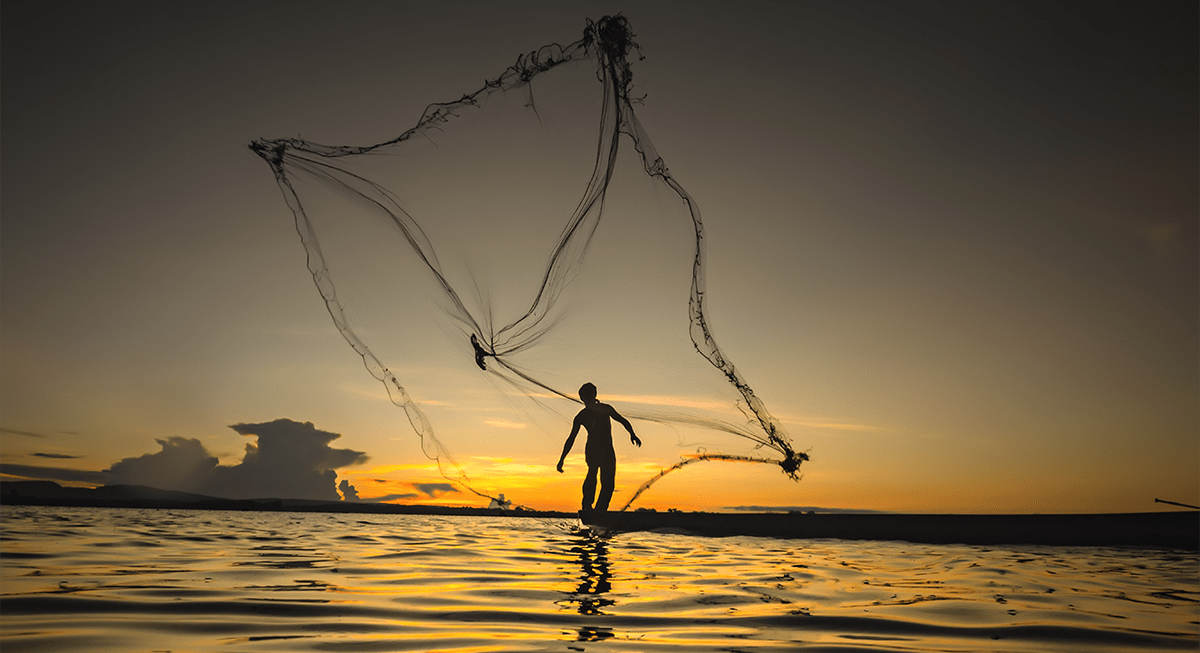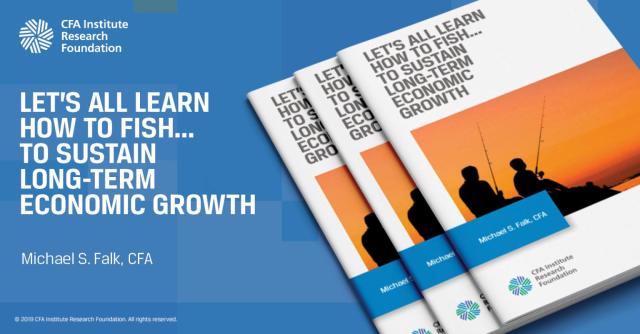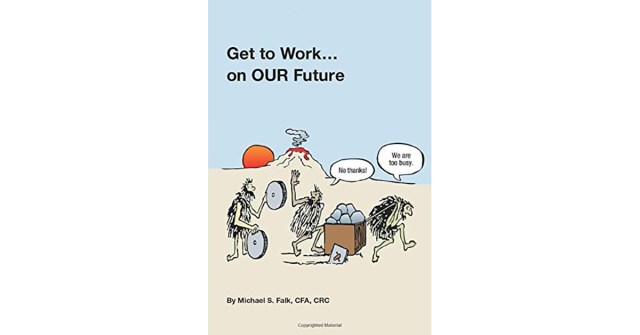[ad_1]
I held my first book in my hands in the spring of 2016. However improbable it was for me to write one, there it was.
And for that I owe the biggest thank you I could ever communicate to the incredible folks at the CFA Institute Research Foundation for helping make it happen.
They took a chance on me, my ideas, and my (lack of?) writing style. My monograph, Let’s All Learn How to Fish . . . to Sustain Long-Term Economic Growth, was a sizable departure from their typical fare. And that no doubt caused them some consternation along the way, but it turned out to be a successful and popular publication.
How It All Started
The story really began five years earlier, in 2011. The US government was facing one of its more serious debt-ceiling decisions, and that August there was a reasonable chance it would opt to default.
That a rich country could potentially choose to not meet its financial obligations for political reasons, which were inextricably bound up with entitlement spending, so bothered me that I put pen to paper. I wrote a seven-page missive that I later jokingly called “My Entitlements Manifesto.”
And Advisor Perspectives published it. Several of the ideas, in their early stages, reached a wide audience. And when you put something out there, you never know who might read it or what might come of it. But what nobody realized at the time was that the ideas centered on my purpose.
I discovered my purpose when I was 22: “to positively influence the financial lives of as many people as possible.”
My little manifesto earned me an invitation to speak at the Annual Financial Management Association (FMA) Conference in 2012 and a return engagement a year later. Not long before the reprise, a major publisher contacted me to ask about my interest in writing a book on the topic. I thought it was a joke: I had never written a book, had no name recognition, and, I mean, c’mon.
But I played it cool, told them about my upcoming presentation and that if they were really interested, they should come and start a conversation.
As often happens with such things, after some initial promise, it didn’t pan out. The publisher’s style requirements didn’t sync up with mine. But the line had been baited and a few months later, at the 67th CFA Institute Annual Conference in 2014, I bumped into Larry Siegel, the director of the Research Foundation. I pitched him my idea. Soon after, he let me know that a book contract was forthcoming.
If the Research Foundation wanted to publish my book, they were going to get my book.
The Aha! Moment
In promoting Let’s All Learn to Fish . . . and its underlying themes, I presented to various CFA Institute local societies in more than a dozen countries around the world. I am so grateful for the opportunity and the warm welcomes I received. The wonderful dialogues that developed touched me more than anyone knew and helped inspire my second book.
So what was the catalyst?
I found people appreciated the ideas I developed in Let’s All Learn How to Fish . . . , but one major concern kept recurring:
“What if there are not enough jobs?”
This was my Aha: What if jobs are the biggest entitlement of all?
“Hey, I’m smart, I’m reliable, and somebody should give me a job. And, they also should pay me $XX an hour or more. Hmmm!”
Even though the 2016 book was already written, I had continued gathering related research, and now I had a reason to sit down and write my previously unwritten chapters.
So Get to Work . . . on Our Future is not a sequel per se . . .
Let’s All Learn to Fish . . . was about designing stronger and better safety nets for those who could not fend for themselves and trampolines for those who could.
We need a new ERA, I wrote, one that shifts us from an Entitlement mentality to a taking Responsibility mentality while having Appreciation for those who are unable to take responsibility. What matters most is opportunity equality. That begins with better governance — fair, transparent rules that welcome everyone into the “game.” Next comes respecting that while most everyone can work, not everyone can hold a job.
Of course, anytime we talk about jobs or work today, we have to understand the threat posed by technology and automation, by robots and artificial intelligence (AI). My unwritten chapters conclude with how we can protect against the real threat to opportunity equality — underemployment — because we will always have plenty of work to do.
My purpose, today, matters more than ever. And, these two books are the biggest part of my living out my purpose.
Since I am just one individual who I am matters little. But my ideas — if they’re worthy — have the potential to touch many more lives than I could hope to alone. Maybe, just maybe, any one idea could make this world better.
Here’s how I put it in a recent email to a friend:
“Winston Churchill told us that ‘We get the government we deserve.’
“We, the ‘royal’ version, need to be better, to deserve better.
“To be better, we need to be able to share ideas and have good dialogues.
“Given Society today, sharing ideas is no longer so simple (or safe).
“My goal is to arm people with ideas and thoughts in a way that may help drive dialogue [and] beget better dialogues.
“I don’t have all the solutions, but I have an education, a voice, and a son.
“If I am not bold enough to use my voice, then how can I look my son in the eye?”

Hear my ideas. Steal them if you wish. I need you to extend the dialogue, my ideas, my voice. Why?
My voice is going to fade. In September 2019, I received a diagnosis (ALS) and my life will be shortened.
Please know that my purpose — these books — are giving me strength; I love my work and will continue with it for as long and as strong as I am able.
Extend my voice, multiply this dialogue, and let’s really “Get to Work . . .” on designing a better future for everyone.
For more from Michael S. Falk, CFA, check out Let’s All Learn How to Fish . . . to Sustain Long-Term Economic Growth from the CFA Institute Research Foundation and Get to Work . . . on OUR Future.
If you liked this post, don’t forget to subscribe to the Enterprising Investor.
All posts are the opinion of the author. As such, they should not be construed as investment advice, nor do the opinions expressed necessarily reflect the views of CFA Institute or the author’s employer.
Image credit: ©Getty Images/Visoot Uthairam
[ad_2]
Image and article originally from blogs.cfainstitute.org. Read the original article here.



